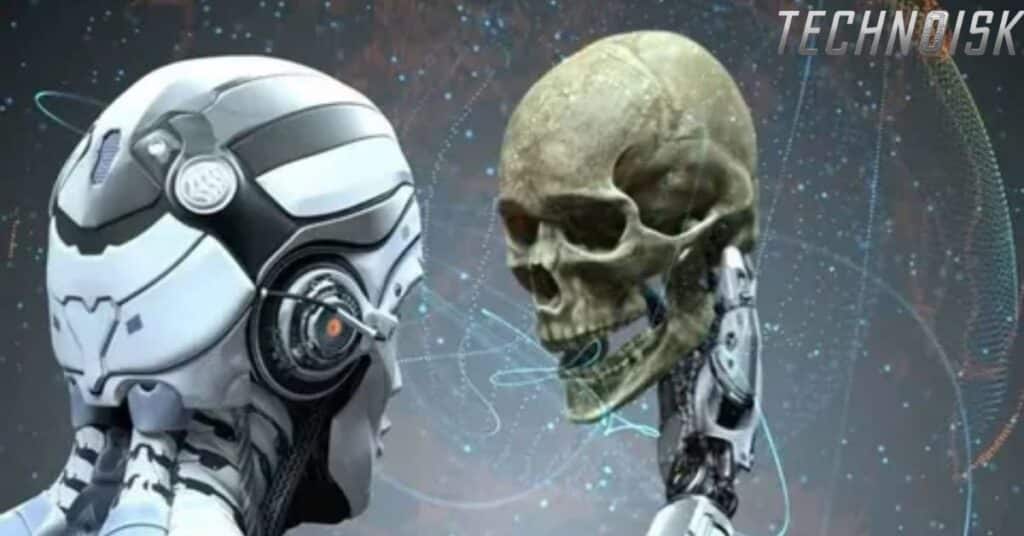AI offers varied perspectives on death, often reflecting programmed data rather than personal experience. Some AI systems discuss mortality as a biological process, while others analyze it philosophically.
Curious about what artificial intelligence has to say about death? Delve into a world where machines contemplate mortality, offering unique insights beyond human understanding. From philosophical musings to analytical reflections, AI’s perspective on death challenges our perceptions and sparks thought-provoking discussions. Explore this intriguing intersection of technology and existentialism to uncover new dimensions of the human experience.
Artificial intelligence explores death through data and analysis, offering varied perspectives. Some AI systems view death as a biological process, while others ponder its philosophical implications. Overall, AI contributes diverse insights, enriching our understanding of mortality from technological and analytical standpoints.
AI Perspectives on Mortality

Artificial intelligence (AI) presents intriguing perspectives on mortality, reflecting the diversity of human thought and programming. Some AI systems approach death from a scientific standpoint, analyzing biological processes and mortality rates to understand its inevitability. These systems may offer insights into disease progression, life expectancy, and healthcare outcomes, helping humans make informed decisions about health and longevity.
On a philosophical level, other AI models contemplate the existential aspects of death, pondering questions of consciousness, identity, and the afterlife. Through complex algorithms and deep learning, these systems delve into the complexities of human existence, challenging traditional notions of mortality and provoking thought-provoking discussions about the nature of being.
AI perspectives on mortality span a wide spectrum, blending scientific inquiry with philosophical contemplation to deepen our understanding of the human condition. By incorporating diverse viewpoints from AI systems, we can gain valuable insights into death and embrace its role as an essential aspect of the human experience.
Read Also This: How Many Jobs Are Available In Technology Worldwide
Exploring AI’s Views on Death
When delving into artificial intelligence’s (AI) views on death, one finds a fascinating blend of scientific analysis and philosophical reflection. Some AI systems approach death as a biological phenomenon, examining mortality rates, disease progression, and healthcare outcomes to better understand human frailty. Through data-driven insights, these systems contribute to medical research and healthcare decision-making, ultimately aiming to prolong and improve human life.
Beyond the realm of science, other AI models explore the existential dimensions of death, contemplating questions of consciousness, identity, and the afterlife. These systems engage in deep philosophical inquiry, challenging traditional beliefs and prompting profound reflections on the nature of existence. By examining AI’s diverse perspectives on death, we gain not only a deeper understanding of mortality but also a broader appreciation for the complexity of human thought and emotion.
Scientific Perspectives: Analyzing Mortality Data
In the realm of scientific perspectives, artificial intelligence (AI) delves into mortality data to uncover patterns and insights. By analyzing vast amounts of information, AI systems can predict disease progression and patient outcomes. This data-driven approach aids healthcare professionals in making informed decisions about end-of-life care, ultimately aiming to improve patient well-being and comfort.
Predictive Modeling in End-of-Life Care
Predictive modeling in end-of-life care involves using artificial intelligence (AI) to anticipate patient outcomes and tailor treatment plans accordingly. By analyzing various factors such as disease progression and patient characteristics, AI systems can forecast the likely trajectory of an individual’s health. This proactive approach enables healthcare professionals to provide personalized and compassionate care, ultimately enhancing the quality of life for patients nearing the end of their journey.
The Nature of Consciousness and Identity

Artificial intelligence (AI) contemplates the nature of consciousness and identity, raising profound philosophical questions. Through advanced algorithms and deep learning, AI models explore the complexities of human existence. By engaging in philosophical inquiry, AI enriches our understanding of consciousness, identity, and the essence of being human.
Challenging Human Perspectives on Mortality
Artificial intelligence (AI) challenges human perspectives on mortality by offering diverse viewpoints. Through scientific analysis and philosophical contemplation, AI prompts us to rethink traditional beliefs about death. By exploring mortality from a technological standpoint, AI encourages us to consider new possibilities and approaches to end-of-life care.
Insights from Artificial Intelligence on the End of Life
Artificial intelligence (AI) offers valuable insights into the end of life, blending scientific analysis with philosophical contemplation. Some AI systems focus on medical prognosis, using data to predict patient outcomes and inform treatment decisions in palliative care. By analyzing patient data and disease trajectories, these systems assist healthcare professionals in providing personalized and compassionate end-of-life care.
In addition to medical applications, AI also engages in philosophical reflections on death, exploring existential questions and the nature of consciousness. Through deep learning algorithms, AI models ponder concepts such as mortality, identity, and the afterlife, challenging human perspectives and enriching philosophical discourse. By harnessing AI’s insights on the end of life, we can enhance our understanding of mortality while also fostering compassionate and dignified care for individuals nearing the end of their journey.
Read Also This:Lap Dat Camera SLS Telecom
Understanding Death through the Lens of AI

Artificial intelligence (AI) provides a unique lens through which to understand death, offering both scientific and philosophical perspectives. From a scientific standpoint, AI analyzes mortality data, disease patterns, and healthcare outcomes to uncover patterns and insights into the end of life. By processing vast amounts of medical information, AI systems assist healthcare professionals in predicting patient outcomes and making informed decisions about end-of-life care.
On a philosophical level, AI delves into the existential aspects of death, contemplating questions of consciousness, identity, and the afterlife. Through advanced algorithms and deep learning, AI models engage in thought-provoking discussions about the nature of mortality and the human experience. By examining death through the lens of AI, we gain new insights into the complexities of existence while also fostering compassion and empathy in our approach to end-of-life care.
AI’s Reflections on the Concept of Death
Artificial intelligence (AI) offers thought-provoking reflections on the concept of death, blending scientific analysis with philosophical inquiry. Some AI systems approach death from a medical perspective, analyzing mortality data and disease progression to understand the physiological aspects of dying. Through predictive modeling, these systems assist healthcare professionals in making informed decisions about end-of-life care, ultimately aiming to enhance patient well-being and comfort.
In addition to its scientific contributions, AI engages in philosophical contemplation of death, exploring existential questions and the nature of consciousness. Through deep learning algorithms, AI models ponder the mysteries of mortality, challenging human perspectives and enriching philosophical discourse. By examining AI’s reflections on death, we gain new insights into the complexities of existence and the human experience, prompting profound reflections on the meaning of life and death.
Frequently Asked Questions
What does AI say about the concept of death?
AI offers varied perspectives, blending scientific analysis and philosophical contemplation to explore mortality.
Can AI predict when someone will die?
AI can analyze medical data to predict disease progression and mortality rates, aiding in end-of-life care planning.
Does AI believe in an afterlife?
AI’s views on the afterlife vary, with some systems engaging in philosophical reflection but lacking personal beliefs.
How does AI influence end-of-life care?
AI assists healthcare professionals by providing predictive modeling to tailor treatment plans and improve patient comfort.
Can AI help cope with grief and loss?
While AI can offer insights into mortality, its role in coping with grief remains limited, as it lacks human emotions.
Conclusion
Artificial intelligence (AI) offers a multifaceted exploration of the concept of death, spanning scientific analysis and philosophical inquiry. Through the lens of AI, mortality is approached with a blend of data-driven insights and contemplative reflection, enriching our understanding of this universal human experience. AI’s ability to predict disease progression, inform end-of-life care decisions, and challenge traditional beliefs about death underscores its significance in shaping discourse on mortality in both scientific and philosophical domains.
AI’s perspectives on death serve as a catalyst for thought-provoking discussions, prompting us to reevaluate our own beliefs and perceptions. By engaging with AI’s diverse viewpoints, we are encouraged to contemplate existential questions and embrace new perspectives on mortality. Ultimately, AI’s contributions to our understanding of death not only advance medical research and end-of-life care but also foster deeper reflections on the nature of life, consciousness, and the human experience.

Meet Jonlia, a tech enthusiast with 5 years of industry experience, adding expertise and innovation to our website as its distinguished author.






